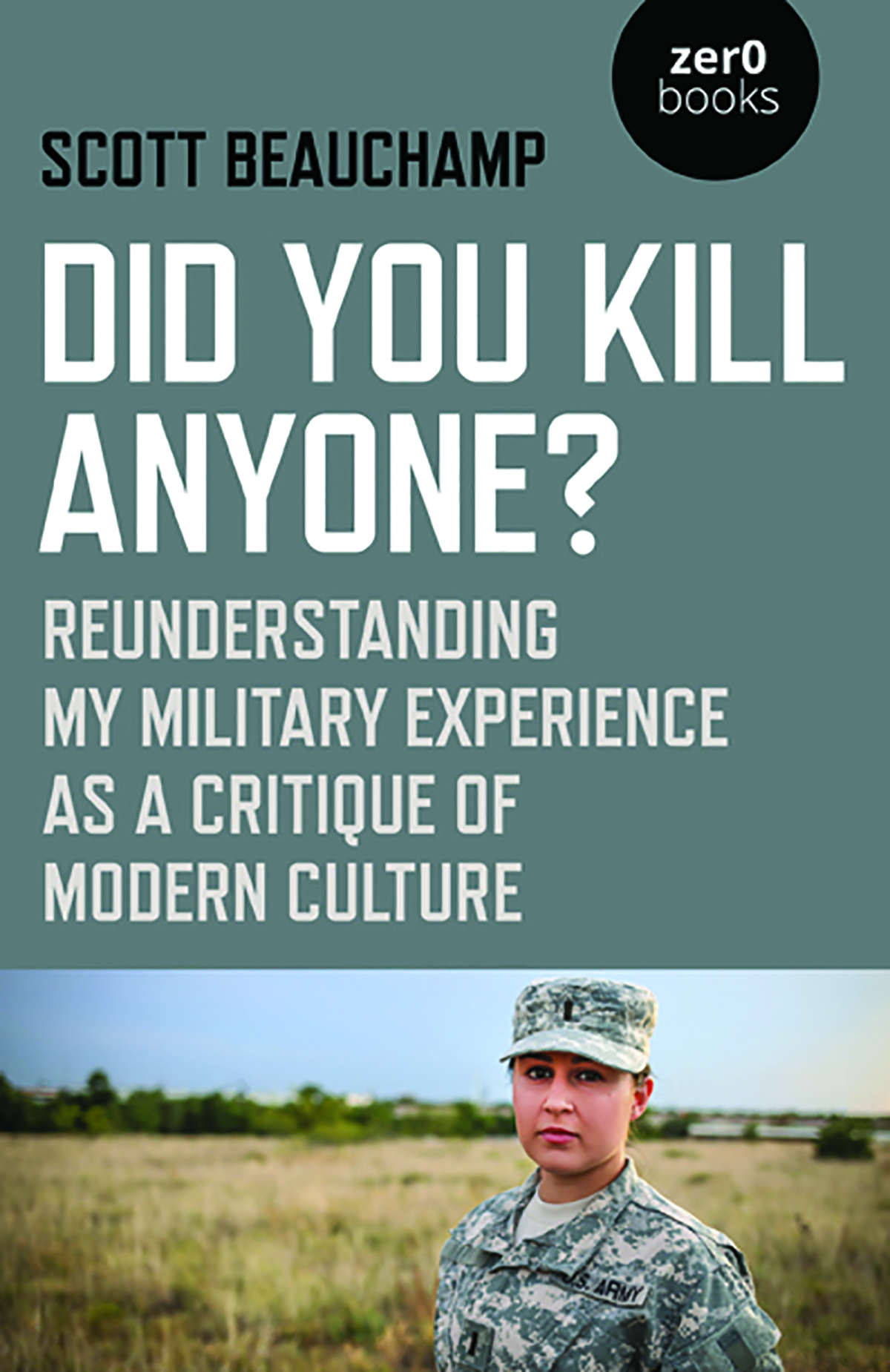Scott Beauchamp’s Did You Kill Anyone? is a difficult book to classify. It is, in a loose sense, a military memoir: a first-person account of Beauchamp’s five years in the Army, spent largely on bases in the United States, Germany, and Iraq. It’s also a kind of bildungsroman, detailing Beauchamp’s transformation from a Kerouac-reading Missouri teenager into a theology-reading adult, still something of a seeker but chastened and matured by the experience of war. Most of all, this slim volume is, as its subtitle suggests, a “critique of modern culture” — one in which Beauchamp holds up the culture of the military, with its hierarchy and ritual and intense solidarity, as a mirror to illuminate what he sees as the shortcomings of civilian life, the ways in which it leaves people starved of the kinds of deep communal and religious experiences that humans always and everywhere long for.
The title of Did You Kill Anyone? is something of a head fake. This is ultimately a book about the relationship between civilian and military culture, and the question of the title is, as Beauchamp writes in the book’s opening pages, “the biggest and most intimidating” of the questions he expected to receive upon returning to civilian life. But it is also the easiest to sweep aside, especially when coming from therapists or drunks outside of parties. The real question that Beauchamp takes up in this book, the one he says that his postwar acquaintances in Brooklyn “should have asked if they wanted to understand” military service, is, “Do you miss it?” Beauchamp avoids giving a direct answer until the book’s postscript, but the titles of his chapters clue the reader in to the fact that the answer is at least a qualified, “Yes.”

The book is structured as a series of thematic meditations on aspects of military life — “Boredom,” “Ritual,” “Community,” “Hierarchy,” “Smoking,” “Tradition,” and “Honor” — and the challenges they present to the values of life outside of uniform. The critique that Beauchamp unfolds isn’t political, exactly, but it is small-c conservative: The Army represents a mode of life that is unambiguously purposeful, rich with meaning and tradition and communal obligation. It is an oasis for “chthonic” energies that have been forgotten or repressed in a society focused largely on freedom understood as limitless consumer choice.
Beauchamp deftly weaves his own reminiscences with insights from anthropologists, novelists, poets, theologians, and sociologists, and the effect is both personal and intellectually weighty. His chapter on community, for instance, opens with the observation that the most “scathing insult” a recruit could hear from a drill sergeant was, “You think you’re an individual?” This segues into a short discussion of the sociologist Robert Nisbet, who defined “communities” (in Beauchamp’s paraphrase) as “people who are necessary to each other.” From this perspective, the Army is an ideal-typical community, its members thrown together at random and forced to cooperate in order to survive. They are necessary to one another in the most fundamental of ways. The result, for the men (and women) involved, is a deep, prerational or subrational form of communal intimacy that is difficult to replicate in civilian life, where associations are voluntary and frequently ephemeral. “My time in the military,” Beauchamp writes a few pages later, “was a brief respite from the frivolity of individual caprice.”
The Sociologist Zygmunt Bauman uses the phrase “liquid modernity” to describe the contemporary world: it is “liquid” because of its “fragility, temporariness, vulnerability, and inclination to constant change.” And although Beauchamp ultimately concludes that he doesn’t miss the military, he does miss the ritual and hierarchy and tradition, all of which offer a sense of permanence, that one’s actions have meaning and solidity across time. “I joined the Army because I wanted temporal coherence,” Beauchamp writes in his chapter on tradition. “I wanted access to the past and the future instead of being isolated at the center of an infinite refraction, stuck halfway between a past I couldn’t touch and a future which never came.”
There is, of course, a limit to how far this line of thinking can be pushed. The very things that make military life so meaningful — the clarity and unity of purpose, the intense communal bonding, the existential stakes granted to every decision by the ever-present threat of death — are those that are nearly impossible to replicate in everyday life. Yet Beauchamp’s book is a critique, not a political program. And in providing us with a portrait of a real, not merely theoretical, alternative to the mode of life encouraged by civilian leisure, Did You Kill Anyone? identifies a dissatisfaction that many of us can recognize, even those who have never put on a uniform.
Park MacDougald is Life and Arts editor of the Washington Examiner.
